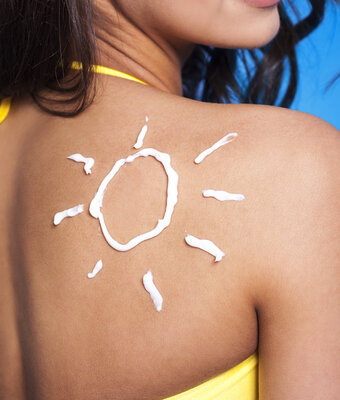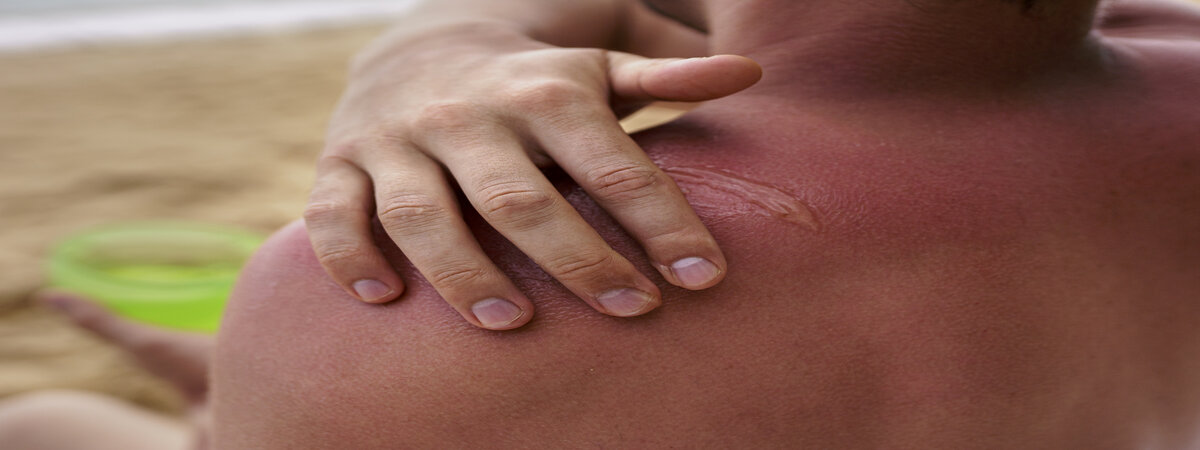
Essential Summer Skincare: Protecting Skin from Sun Damage
We’ve all been there—maybe you forgot to reapply sunscreen, or you didn’t think you’d be outside long enough to burn. But now your skin is red, hot, and sore. What should you do? And more importantly, how can you prevent it next time?
How to Prevent and Treat Sunburn
We all love a bit of sunshine, but too much of it can leave your skin red, sore, and irritated. So, how can you avoid sunburn in the first place? And if you do get burned, what’s the best way to help your skin heal?
Protecting Your Skin: Simple but Essential Steps
The best way to deal with sunburn? Don’t get burned at all. Here’s what you can do:
Sunscreen is a must – Choose a broad-spectrum SPF 30 (or higher) and apply it every single day—even if it’s cloudy.
Reapply, reapply, reapply – Sunscreen doesn’t last forever. If you’re outside for long periods, sweating, or swimming, put on another layer every two hours.
Dress for protection – A wide-brimmed hat, sunglasses, and lightweight, long-sleeved clothing can help shield your skin.
Know when to seek shade – The sun is at its strongest between 11 AM and 3 PM, so try to avoid direct exposure during these hours.
Got Sunburned? Here’s What to Do.
If your skin is already burned, the goal is to calm the irritation and speed up healing:
Move out of the sun immediately – Staying exposed will only make things worse.
Cool things down – A lukewarm (not cold) shower or a damp washcloth can help ease the heat.
Stay hydrated – Sunburn draws moisture from your body, so drink plenty of water.
Be gentle with your skin – After showering, pat (don’t rub) your skin dry and apply a soothing, fragrance-free moisturizer. Aloe vera is a great option.
Watch for warning signs – If you feel dizzy, nauseous, or your sunburn blisters, you may need medical attention.
Keep your skin covered – Your skin is already damaged, so let it heal by staying out of the sun for a few days.
Can Sun Damage Be Undone?
We get this question all the time. Once sun damage occurs, it can’t be fully reversed—but some treatments can help improve the skin’s appearance.
Over time, too much sun exposure can lead to wrinkles, dark spots, and loss of skin elasticity. Dermatological treatments like retinoids, chemical peels, and laser therapy can help, but ultimately, prevention is far better than trying to fix damage later.
Is Tanning Safe?
Let’s be clear—there is no such thing as a safe tan. A tan is just your skin trying to protect itself from UV damage. Over time, repeated exposure can increase your risk of skin cancer, as well as cause premature aging and pigmentation issues.
That said, if you love the look of tanned skin:
- Wear sunscreen anyway – A tan won’t stop you from burning.
- Know your limits – Your skin can only produce so much melanin before it starts to burn.
- Consider sunless tanners – They’re a much safer option if you want a bronzed glow.
Protecting Your Skin for the Long Run
Sun protection isn’t just about avoiding burns—it’s about keeping your skin healthy. Here’s how:
- Use SPF daily – Even in winter or when staying indoors, UV rays can still reach you.
- Use enough sunscreen – Most people apply way too little. A nickel-sized amount for your face and a shot-glass amount for your body is a good rule of thumb.
- Choose mineral sunscreen if you have sensitive skin – Zinc oxide and titanium dioxide are great options.
- Reapply every two hours – Especially if you’re sweating or swimming.
- Be aware of UV reflections – Water, sand, and even snow can intensify sun exposure.
- Do regular skin checks – If you notice new or changing moles, get them checked by a dermatologist.
Need Expert Advice?
If you’re worried about sun damage, need help choosing the right sunscreen, or want to discuss treatment options, our dermatologists are here to help.
FAQ
Can I use expired sunscreen if that’s all I have?
It’s best to avoid using expired sunscreen. Expired products may not provide adequate protection, so invest in a fresh bottle.
Is it necessary to wear sunscreen on cloudy days?
Yes, UV rays penetrate clouds. Protect your skin even on cloudy days to prevent UV damage and premature aging.
What should I do if I get sunburned despite precautions?
If sunburn occurs, follow the tips in the article. Additionally, consider over-the-counter remedies like aloe vera gel for relief.
Can I wear makeup over sunscreen, and if so, how?
Yes, you can apply makeup over sunscreen. Wait a few minutes after applying sunscreen to let it absorb, then apply your makeup as usual.
Are natural sunscreens as effective as chemical ones?
Natural sunscreens can be effective, but they may need more frequent reapplication. Ensure they offer broad-spectrum protection.
Can I skip sunscreen if my skin has a naturally dark tone?
No, all skin tones need protection. While darker skin has more melanin, it can still get damaged and develop issues like hyperpigmentation.
How often should I check my moles for changes?
Regularly examine your moles for changes in size, shape, color, or texture. If you notice any changes, consult a dermatologist promptly.
What’s the difference between UVA and UVB protection in sunscreen?
UVA rays cause skin aging, while UVB rays cause sunburn. Look for a sunscreen that offers broad-spectrum protection to guard against both types of UV rays.


